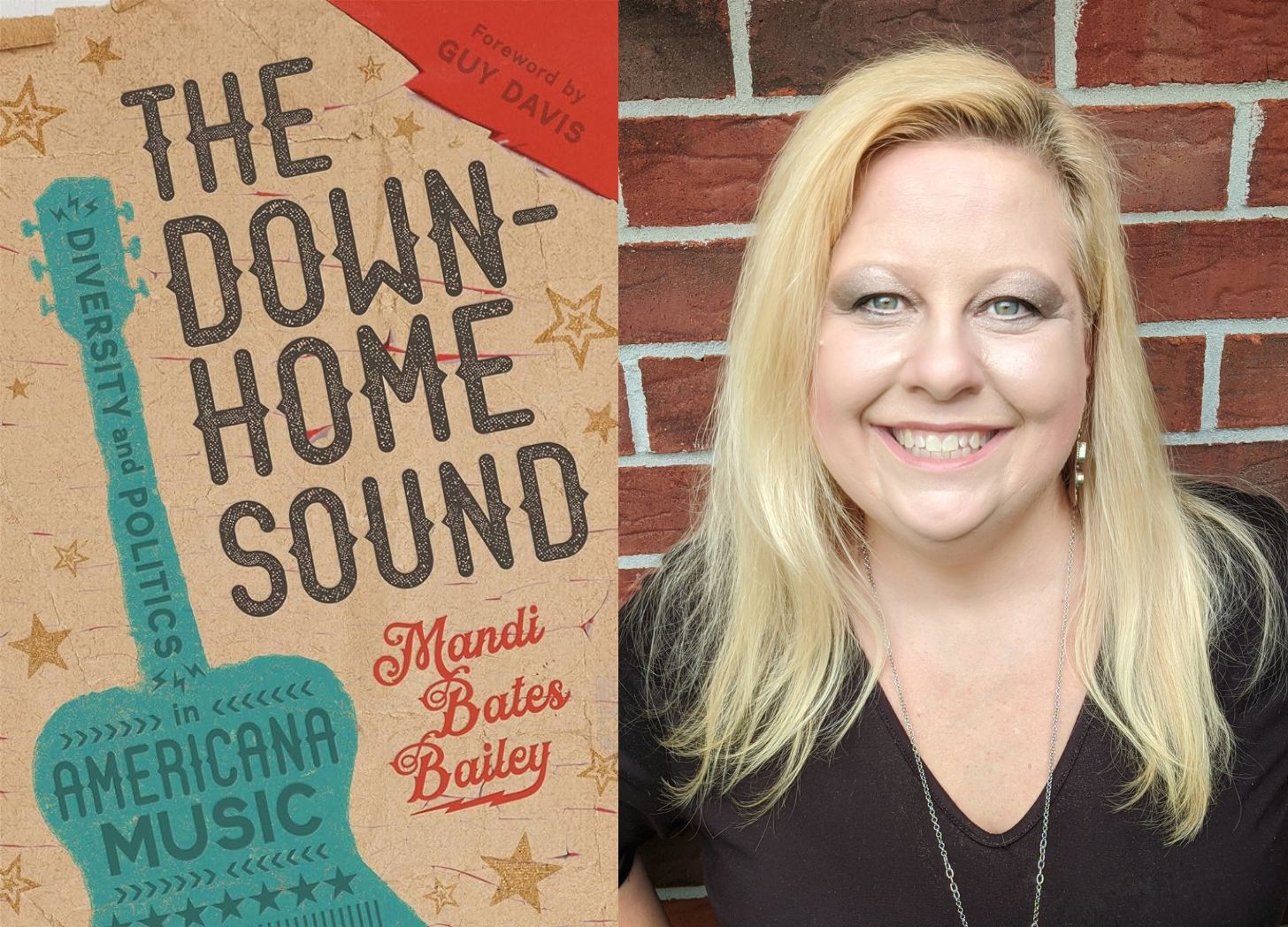
Americana: is it a musical genre or a collective of musicians? How has roots music influenced our country’s politics and culture, and in what ways does this section of music still have room to grow?
Mandi Bates Bailey explores this subject matter in her new book, The Downhome Sound: Diversity and Politics in Americana Music. Dr. Bailey is a professor of political science at Valdosta State University. Here’s our conversation.
The following interview has been condensed and edited from the original recording.
Let’s start by talking about your personal interest in Americana. Where and when did you first become interested in this type of music?
I’m a hillbilly, right? I’m from Southern Appalachia, so I was exposed to some of this music growing up. But also, I was a child when Nirvana hit the scene. So I wouldn’t say that it was popular to necessarily be a fan of roots music.
I think that probably a defining moment for me—you know, given my age—would have been when Bob Dylan did MTV Unplugged.
But I never really had an interest in merging what I enjoy with my research. I love what I do, I love the research that I do, but it never occurred to me to make that connection.
Your book focuses primarily on the diversity and politics of Americana Music, and I know many writers and researchers write books because they want to uncover something so they can understand it better themselves. In writing this book, what was it that you were trying to uncover?
You know, I just wanted to know what the impact was. I think that we spend a lot of time preaching to the choir when we talk about entertainment media choices. Americana is still something of a niche market in this country. Right? So not a lot of people have heard of it or even understand how to make the connections. Wait a minute, blues and folk and country music can operate in the same space? That can seem very odd to people that are unfamiliar with this music.
I really just wanted to know what the impact was. And to that extent, while my personal connection with this is very strong and can be very emotive, my approach to studying it is very dispassionate.
While writing this book, you interviewed several Americana musicians, plus sources adjacent to the history of this area of music—people like journalists and festival organizers. Who was one of your favorite people you talked to while researching?
They were all really wonderful. I can’t say enough good things about everyone involved.
Robbie Fulks is brilliant. You can see the wheels turning when the man speaks. I like the way that he considers his audience. I like the way that he’s so very even-handed in his considerations of things.
Patterson Hood [of Drive-By Truckers] was a lot of fun. Interviewing Patterson Hood is a lot like listening to him sing. He’s very passionate about what he thinks.
I planned on these interviews being about 30 minutes, and I think most of them were over an hour, because these people just had such wonderful things to say, and they were willing to not only analyze themselves but also the Americana environment and their fans. They were able to be critical in ways we might not think someone who is obviously very dedicated to their craft could be.
If you had to put it in a nutshell, from a political and cultural standpoint, what influence has American roots music had on our country?
I think my book is more about potential than it is actual impact. I think Guy Davis probably said it well in the foreword to my book, and I’m very excited that Guy was willing to do that for me. He said something to the effect of: this book poses a lot of good questions, and it illustrates that the music is not a soundtrack. It’s not something that’s always operating in the background, but rather it can have an impact.
I think what I find in my book is that roots music is a powerful tool. It can impact audiences, but they have to be exposed to it. And that’s the rub. And just a lot of people are just not exposed. The flip side of that is, if this were more widely disseminated, would it still have that kind of potency? It does point to more accepting attitudes toward racial ethnic minorities, to the LGBTQ population, to immigrants. But again, exposure is generally limited to fans of this music who may already have harbored those kinds of attitudes anyway.
Mandi Bates Bailey’s book The Downhome Sound: Diversity and Politics in Americana Music is out now on Louisiana State University Press.

Mr. Al Pete and Notsucal Release Their Latest Collab, ‘G4.5’

Dinner Party, Tom Misch and More from the Neighborhood with Mr. Al Pete

An Ultra-Chill Playlist from the Latest Episode of Electro Lounge

Sing Out Loud Festival Returns With Hozier, Beabadoobee, Father John Misty, Vance Joy and More

Chicago Alt-Country Faves Wilco Return to St. Augustine with Indie-Folk Great Waxahatchee

Looking for an Alternative to Spotify? Consider Hopping on the band(camp) Wagon

Khruangbin to Bring ‘A LA SALA’ Tour to St. Augustine in April

Perfume Genius, Flipturn, Tamino + Mitski and 6 New Songs to Stream

Song of the Day | “all tied up” by Glixen



